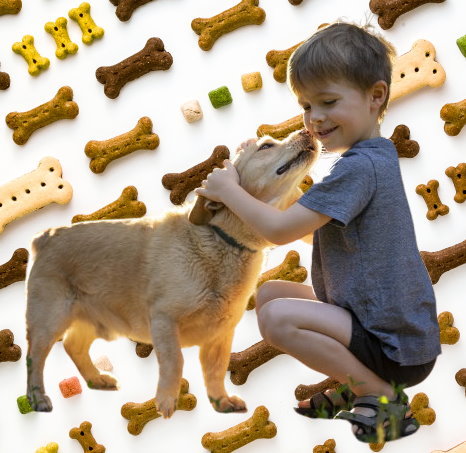Welcome to Dog Training Newbies !
Welcome to Dog Training Newbies !

Proper nutrition plays a vital role in the overall health and well-being of our furry companions. As responsible dog owners, it is our responsibility to ensure that our canine friends receive a balanced and healthy diet that meets their specific nutritional needs. In this article, we will explore the essentials of dog nutrition and provide valuable insights into feeding your dog a diet that promotes optimal health.
UNDERSTANDING THE BASICS OF DOG NUTRITION
Dogs are omnivores, which means they require a combination of both animal and plant-based nutrients to thrive. A balanced diet for dogs should consist of the following essential components:
- Protein: Protein is crucial for building and repairing tissues, promoting muscle growth, and supporting a healthy immune system. High-quality animal-based proteins, such as chicken, beef, or fish, are ideal sources.
- Carbohydrates: Carbohydrates provide energy for dogs. Whole grains like brown rice and oats, as well as vegetables and fruits, are excellent sources of carbohydrates. These also provide essential fiber for digestive health.
- Fats: Healthy fats are essential for maintaining a shiny coat, supporting brain function, and providing a concentrated source of energy. Look for dog food that contains omega-3 and omega-6 fatty acids, derived from sources like fish oil or flaxseed.
- Vitamins and Minerals: Dogs require a variety of vitamins and minerals for optimal health. Fruits and vegetables, such as sweet potatoes, carrots, and blueberries, can provide these essential nutrients in their diet.
CHOOSING THE RIGHT DOG FOOD
Selecting the right dog food is crucial for meeting your dog's nutritional requirements. Read the labels carefully and look for high-quality dog food that lists real meat as the primary ingredient. Avoid products with fillers, artificial additives, and by-products.
Consider your dog's age, size, breed, and any specific dietary needs they may have. Puppies, adult dogs, and senior dogs each have unique nutritional requirements. Choose a dog food that is specifically formulated for their life stage.


PORTION CONTROL AND FEEDING SCHEDULE
Proper portion control is essential to prevent overeating or underfeeding. The amount of food your dog needs depends on factors such as age, activity level, metabolism, and overall health. Consult your veterinarian to determine the appropriate portion sizes for your dog's specific needs.
Establish a regular feeding schedule to maintain consistency and promote healthy digestion. Divide your dog's daily food intake into two or three meals, depending on their age and activity level. Avoid free-feeding, as it can lead to obesity and other health issues.
TREATS AND SNACKS
Treats and snacks can be a part of your dog's diet, but they should be given in moderation. Choose healthy, natural treats that are low in calories and free from artificial additives. Many fruits and vegetables, such as apples, carrots, and green beans, can be used as nutritious and tasty treats.
HYDRATION AND WATER AVAILABILITY
Water is essential for your dog's overall health and well-being. Always provide fresh, clean water for your dog and ensure it is easily accessible. Monitor their water intake, especially during hot weather or after vigorous exercise, to prevent dehydration.
REGULAR VETERINARY CHECK-UPS
Regular veterinary check-ups are crucial for monitoring your dog's overall health and ensuring their nutritional needs are being met. Your veterinarian can provide guidance on diet, portion sizes, and any specific dietary requirements based on your dog's individual needs.
In conclusion, feeding your dog a balanced and healthy diet is essential for their overall health and well-being. Understanding the basics of dog nutrition, choosing the right dog food, practicing portion control, and establishing a feeding schedule are key components of providing optimal nutrition. Remember to consult with your veterinarian for personalized advice and make adjustments to your dog's diet as needed. By prioritizing nutrition, you are taking an important step towards ensuring a long, happy, and healthy life for your beloved canine companion.